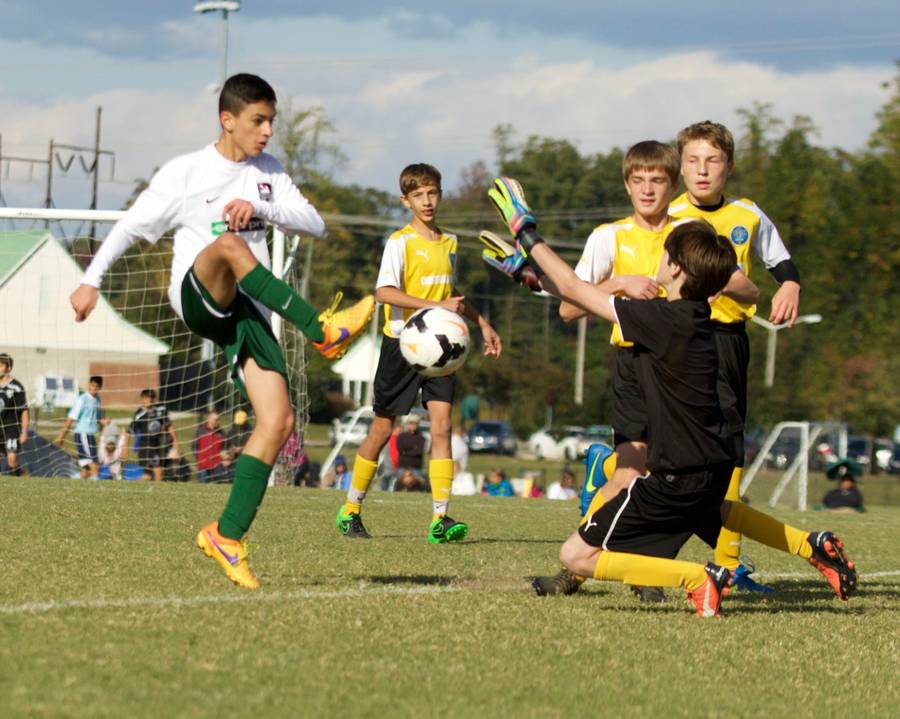In the world of sports, football holds a prominent position, celebrated and followed by millions worldwide. However, there's more to a successful football career than merely playing the game. To build a sustainable football career, athletes must leverage education. This article, presented by CustomAssignmentWriters.com, explores the importance of education in football and provides strategies for student-athletes to balance both areas effectively.
Beyond the Game: How Education Shapes Long-Term Success in Football
The role of education in shaping a long-term successful football career cannot be overstated. Education provides athletes with a broader perspective of the world, allowing them to make informed decisions about their career. It equips them with valuable skills such as critical thinking, problem-solving, and communication, which are not only useful on the field but also off the field.
Moreover, education provides a safety net for these athletes. Despite the allure of professional football, it's a highly competitive field with a relatively short career span. Therefore, having a solid education gives athletes an alternative career path after retirement from football. It opens up opportunities in fields such as coaching, sports management, broadcasting, and even entrepreneurship.
Furthermore, education instills discipline, a trait crucial for any successful footballer. It teaches athletes the importance of time management, perseverance, responsibility, and commitment — qualities that are directly transferable to a football career. Therefore, education not only provides a fallback option, but it also contributes to football success.
The Power of Knowledge: Enhancing Football Skills through Education
Education plays a crucial role in enhancing football skills. Through subjects like physical education and sports science, footballers can acquire knowledge about nutrition, exercise physiology, injury prevention, and rehabilitation. This knowledge is instrumental in optimizing their performance and prolonging their career.
Moreover, studying game strategies, tactics, and the history of football can give players a competitive edge. Understanding the evolution of the game, the various playing styles, and successful tactics used in the past can enrich a player's game, making them more versatile and adaptable on the field.
Additionally, education helps in developing mental resilience, a key attribute for any professional athlete. Dealing with pressures of performance, coping with injuries, and handling failures are all part of a footballer’s life. Education, through subjects like psychology and human behavior, can equip players with tools to deal with these challenges effectively, thereby enhancing their overall performance.
Balancing Education and Football: Strategies for Student Athletes Pursuing a Sustainable Career
Balancing education and football can be a challenging task. However, with the right strategies, student-athletes can excel in both areas. Time management is the first step. By organising their time efficiently, students can ensure they dedicate adequate hours to both their studies and football training.
Moreover, schools and universities often provide support systems to help student-athletes. These may include tutoring services, study halls, academic advisors, and flexible class schedules. Utilizing these resources can significantly ease the balancing act.
Lastly, maintaining a healthy lifestyle is crucial. Regular exercise, proper nutrition, and adequate sleep can boost both academic and athletic performance. Therefore, while juggling education and football may seem daunting, with the right approach, it can pave the way for a sustainable football career.
From the Classroom to the Field: How Education Impacts Football Performance and Opportunities
The impact of education on football performance and opportunities is profound. Education enhances the cognitive abilities of players, making them quick decision-makers on the field. It also provides them with a holistic understanding of the game, making them better team players.
Furthermore, education opens up opportunities beyond the field. For instance, a degree in sports management can lead to roles in football administration, while a qualification in sports journalism can open doors in sports media. Additionally, players with a good education are often more attractive to sponsors and clubs, as they're seen as well-rounded individuals.
In conclusion, while natural talent and hard work are crucial for a successful football career, the importance of education cannot be overlooked. By leveraging education, footballers can not only enhance their performance but also build a sustainable career, both on and off the field. CustomAssignmentWriters.com encourages all aspiring footballers to invest in their education, for it's an investment that guarantees long-term returns.


















